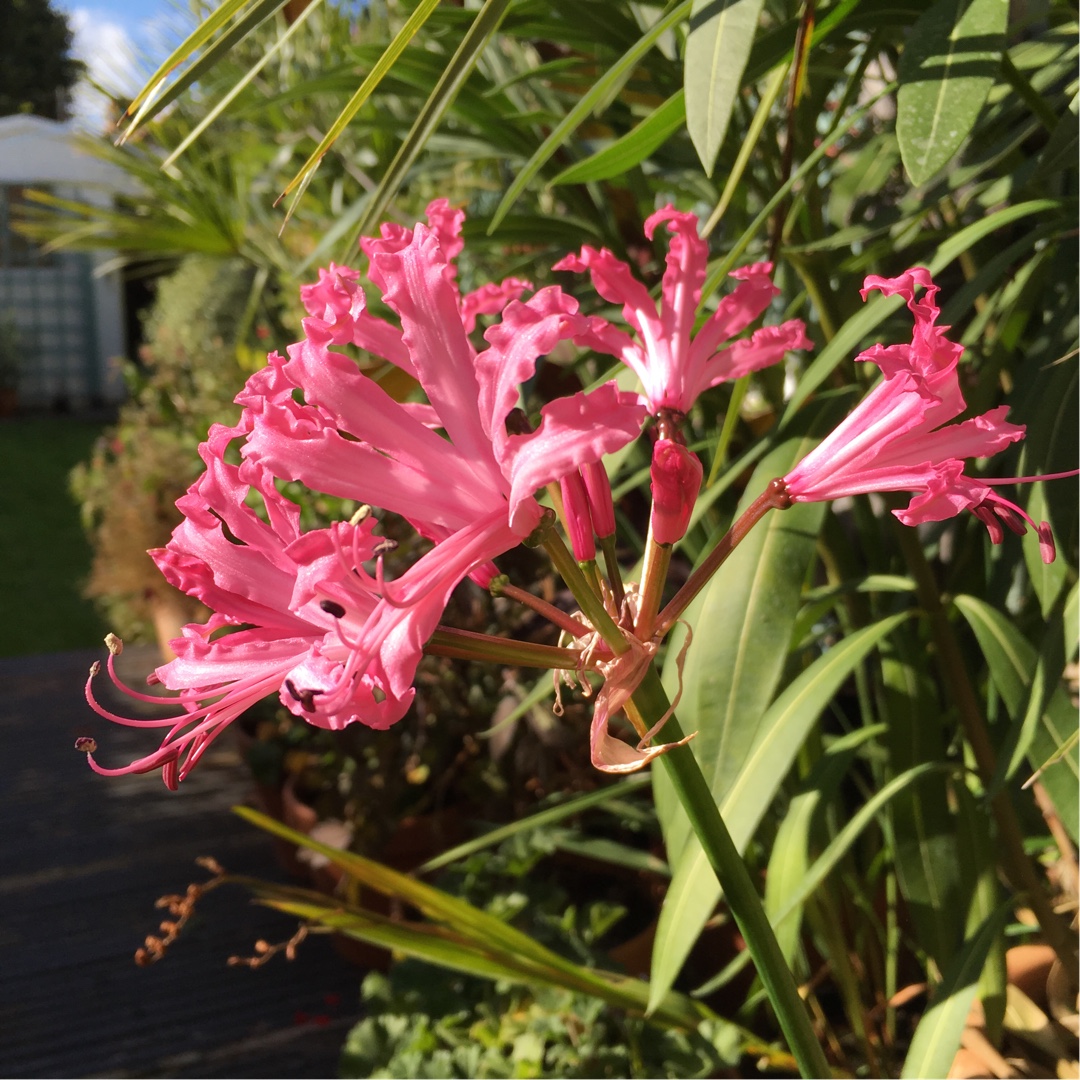
Nerine bowdenii
Bowden Lily
Nerines are Autumn-flowering bulbs. They have strap-like leaves, often appearing after the flowers. The flowers have 6 narrow, recurved petals and prominent stamens. Nerine bowdenii bulbs are more hardy than many Nerines, and can, therefore, be grown outdoors in cooler climes. They bear brilliant pink, Autumn flowers.
Contributed by @BillyB
-
Full sun
-
Very little water
-
Frost Hardy: 23F (-5°C)
-
Light and free draining
Common name
Bowden Lily
Latin name
Nerine bowdenii
type
Bulb
family
Amaryllidaceae
ph
5.5 - 7.0 Acid - Neutral
Plant & bloom calendar
-
Best time to plant
-
When the plant will bloom
full grown dimensions
 0.10 M
0.50 M
0.10 M
0.50 M
Nerine bowdenii
Nerines are Autumn-flowering bulbs. They have strap-like leaves, often appearing after the flowers. The flowers have 6 narrow, recurved petals and prominent stamens. Nerine bowdenii bulbs are more hardy than many Nerines, and can, therefore, be grown outdoors in cooler climes. They bear brilliant pink, Autumn flowers.
Planting Bulbs in Spring (Nerine bowdenii)
From Early Spring TO Early Spring
For Nerine bowdenii and its cultivars, which begin grown in spring and flower in the autumn, plant your bulbs as soon as they arrive each one into a 9cm pot filled with a mixture of 50% multipurpose compost and 50% loam based potting compost, such as John Innes No 2. When planting, make sure that the roots are spread out and only the bottom half of the bulbs are below the compost level. The top half of the bulb (the neck) must remain above it. Wait until the roots fill the pot before planting out into the garden, at the same level. Resist repotting regularly as Nerines dislike disturbance. Alternatively, Nerines make good pot plants and can be planted in shallow terracotta pans. Ensure it is a shallow pot and plant in the same where as for the ground, with the neck of the bulb exposed.
Flowering Season
From Early Autumn TO Late Autumn
Nerines typically flower in the autumn period. For Nerine bowdenii and its cultivars, flowering usually occurs in the autumn as foliage begins to die back after it has been growing all summer. Whereas for Nerine sarniensis and its cultivars, flowering usually occurs also in the autumn but before foliage growth starts.
Propagation by Offsets
From Early Spring TO Mid Summer
Nerine bulbs will produce offsets over time, growing from the sides of existing bulbs. It is important to ensure the young bulbs have reached a good size before breaking them off from the parent and can be done when young bulbs are at least two thirds the size of the parent bulb. During the dormant season, before bulbs are due to come into growth (which is late winter/early spring for Nerine bowdenii and cultivars, or summer for Nerine sarniensis and cultivars) dug up and split the bulbs carefully, ensuring not to break any new roots, and replant in a suitable potting mix ensuring the young bulb is exactly the same height within the soil as it was when attached to the parent. The young neck of the bulb should be exposed above the soild.
Propagation by Division
From Late Autumn TO Early Winter
Divide the clumps after flowering has finished, and re-plant the divisions.



























